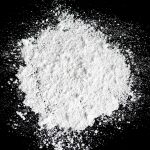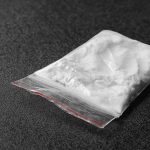- Eating Cocaine
- Effects Of Eating Cocaine
- Cocaine Overdose
- Long-Term Health Problems
- Is Eating Cocaine Addictive?
Cocaine is a central nervous system stimulant drug that can cause euphoria and increased energy. It is most commonly snorted or smoked but can also be consumed orally.
Eating cocaine may be perceived as safer than other routes of administration but all methods of cocaine use pose a high risk of addiction and overdose. Eating cocaine can cause seizures, cardiac arrest, and long-term health problems.
Eating Cocaine
Cocaine comes from the leaves of the coca plants native to South America. Historically, people have eaten coca leaves for their effects of increased energy and alertness.
Cocaine is extracted from the coca leaves and processed with other chemicals to create cocaine hydrochloride, a white powder.
Eating cocaine powder causes it to enter the bloodstream and produce effects slower than snorting, smoking, or injecting. However, eating cocaine can cause heart problems, seizures, and increase anxiety.
Some people rub cocaine on their gums before using it to test the quality of the drug. Cocaine that causes numbing in the gums is associated with high-quality cocaine.
Crack Cocaine
Other forms of cocaine, like crack cocaine and freebase cocaine, are crystallized forms of cocaine produced for the purpose of smoking the drug. Since crack and freebase cocaine are more potent than powder cocaine, it can be dangerous to take it orally.
Effects Of Eating Cocaine
Eating cocaine causes effects similar to snorting or smoking cocaine, including increased energy, alertness, and euphoria. Although eating cocaine is associated with less intense effects compared to other methods of use, it can have serious adverse health effects.
Eating cocaine can cause the following side effects:
- sensory sensitivity
- impaired sleep
- talkativeness
- increased heart rate
- increased blood pressure
- increased body temperature
- constricted blood vessels
- tremors
- restlessness
Although cocaine may seem to have a positive effect on your mood, focus, and energy, long-term use can have the opposite effect. Brain changes that occur with frequent or heavy use of cocaine can cause anxiety, irritability, paranoia, and auditory hallucinations.
Cocaine Overdose
Eating cocaine can lead to an overdose if you consume too much or mix it with other drugs. Consuming too much cocaine can have a dangerous effect on your cardiovascular health and cause heart problems or sudden death.
Mixing Cocaine With Other Substances
Cocaine is used in combination with other drugs, like opioids and alcohol. Mixing alcohol and cocaine causes the body to produce a substance called cocaethylene. Cocaethylene is toxic and may cause increased adverse effects on the cardiovascular system.
Heroin produces depressant effects, which may appear to balance the stimulant effects of cocaine. However, this can be dangerous and you may unintentionally ingest too much cocaine or heroin. Cocaine’s effects wear off quicker than heroin and you could experience a heroin overdose.
Long-Term Health Problems
Eating cocaine may be perceived as safer than other routes of administration. Injecting, smoking, and snorting cocaine is associated with a risk of contracting HIV and hepatitis C from sharing paraphernalia.
However, eating cocaine poses its own long-term health risks and can be harmful to your physical and mental health.
Long-term effects of eating cocaine may include:
- weight loss
- paranoia
- gastrointestinal damage
- chest pain
- stroke
- seizures
- irregular heartbeat
- brain bleeding
- increased risk of Parkinson’s disease
Is Eating Cocaine Addictive?
Eating cocaine poses similar risks to snorting, injecting, or smoking the drug. Using cocaine causes the release of the neurotransmitter dopamine, which is a brain chemical involved with pleasure and reward.
Increased levels of dopamine are associated with the drug’s euphoric effects. However, increased dopamine levels after long-term cocaine abuse may alter brain chemistry and lead to addiction.
Signs of drug abuse include:
- decreased appetite
- paranoia/mood swings
- loss of interest in hobbies
- neglecting responsibilities
- engaging in risky behaviors
- poor hygiene
- intense cravings
Although someone may start abusing cocaine by eating it, as the abuse progresses they may turn to more dangerous forms of use.
Cocaine Addiction Treatment
Cocaine addiction can result in intense cravings and increasingly heavier use, regardless of its harmful effects. Although addiction can be difficult to overcome on your own, professional treatment programs can help you recover, build confidence, and improve well-being.
If you or a loved one is struggling with cocaine addiction, we are here to help. Please reach out to us today to learn about our treatment options.
Cocaine Addiction Treatment Options
Sources
Written by
Northeast Addition Editorial Team
©2024 Northeast Addition Center | All Rights Reserved
This page does not provide medical advice.






